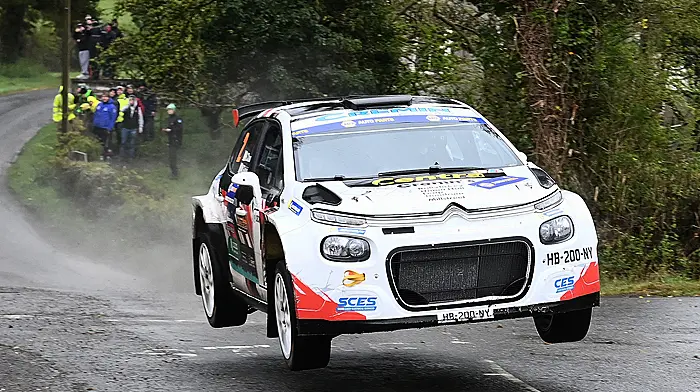BY SEÁN HOLLAND
LAST weekend, the inter-provincial games in Croke Park served as a unique platform for testing the new Football Review Committee (FRC) rules, sparking plenty of conversations among players, fans, and analysts. Clonakilty’s Maurice Shanley, represented Munster in the games and shared his thoughts on both the experience and the impact of the new rules on the game.
Reflecting on the opportunity to represent Munster, Shanley was honoured to represent his province and cited his strong ties to many of the team through his college years at both the University of Limerick and University College Cork. ‘It was a good experience,’ he said. ‘I went to college in UL and UCC so I would’ve known a lot of the lads on the team, so it was good to mingle like that. I suppose you were missing lads that are still in their club championships but it’s still an honour to represent Munster.’
The new rule changes were aimed at increasing the pace and fluidity of the game. Shanley acknowledged the shift, noting the effect it had on the game's rhythm and the players' stamina. ‘They all contribute to a fast game,’ Shanley said when asked which of the new rules had the biggest impact. ‘The game is definitely a lot faster. It is more exciting for those watching it. But definitely after playing, your fitness levels are going to have to go way up. There’s no real break in the game with the new rules. With the ‘solo and go’ and the new kickout rule, there’s no time for a little bit of break. With the rules we have now, you can rest when there’s a free or a kickout. With these rules, you don’t have that opportunity.’
With faster play comes a greater challenge, particularly for defenders like Shanley. Traditionally, breaks in play provided moments to regroup, recover, and reset the defensive structure. Under the new rules, these moments are few and far between, raising the demand for superior fitness levels across the board.
According to Shanley, the main consensus among players was that the new rules favoured forwards significantly more than defenders. ‘The main consensus was that it suits forwards a lot more than it does defenders,’ Shanley explained. ‘Like even the advanced mark, if the forward catches it inside the 21, he has the chance to go for a goal and regardless, even if it’s stopped, it's brought back for a mark. So that’s the main one, but we all felt it favoured the forwards more.’
When asked specifically about the adjustments defenders would need to make, Shanley highlighted the challenge of managing space in a faster, more open game. ‘You’re going to have to judge space a lot better as a defender,’ he noted. ‘You are going to be marking with a lot more space in front. The rules lean towards a fast break and more counter-attacks, and with the three inside, it does bring the option of a long kick pass, so you have to be wary of the space in front of the forwards on those.’
Shanley also touched on the importance of bringing back pre-season competitions, such as the McGrath Cup, to help teams adapt to the new rules. ‘Yeah, you'd definitely need a few games with officials as well. Proper officialed games, to get used to those rules. If they were to bring those rules in, you would need that extra bit of practice with them. So I think it would be important to have those.’









